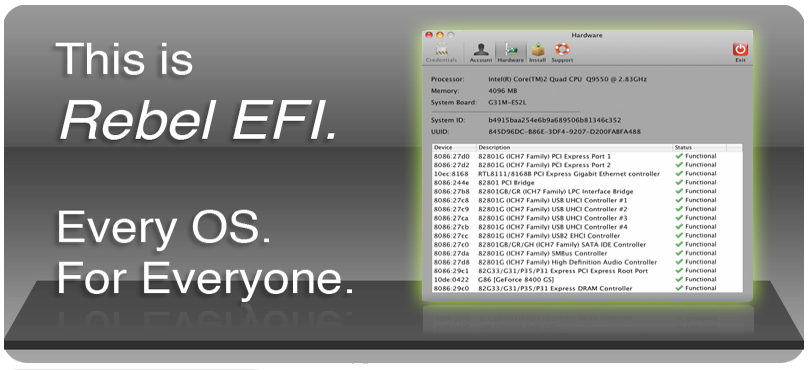After Apple agreement, Psystar officially halts sales of clone Macs
All of Psystar's hardware, including the OpenDuo, Open(Q) and Open(7), which came with Mac OS X preinstalled, are now listed as "Out of Stock" on the company's Web site. On Tuesday, AppleInsider first reported the terms of the multi-million dollar settlement, in which Psystar agreed to pay Apple damages for copyright infringement, breach of contract, and violation of the Digital Millennium Copyright Act. Apple, in turn, agreed to not refile claims of trademark infringement, trade dress infringement, trademark dilution, state unfair competition and common law unfair competition.
Psystar's ceased sales amount to a victory 17 months in the making for Apple, which originally sued to stop the "hackintosh" business in July of 2008. But Apple's work is likely not done.
Unsurprisingly, Psystar is still offering its Rebel EFI product — something the Florida corporation indicated it planned to do through a court filing on Monday. The $50 product allows third-party installation of Mac OS X on unauthorized computers.
Psystar has contended that the court should not grant Apple an injunction against the Rebel EFI product because it was not litigated in the case in a San Francisco court. Rebel EFI, however, is the subject of a separate lawsuit filed in a Florida court by Psystar, against Apple.
The software, revealed in October, allows certain Intel-powered PCs to install Mac OS X 10.6 Snow Leopard. In response, Apple has tried to convince the court that Psystar is "trafficking in circumvention devices" that will irreparably harm the Cupertino, Calif., company.
Further issues, including the Rebel EFI product, could be resolved in the separate case filed in a Florida court. There, Psystar has alleged that it is entitled to be able to buy retail copies of Snow Leopard and install them on machines. It has called Apple's tying of Mac OS X to proprietary machines an "anticompetitive" practice.
 Katie Marsal
Katie Marsal








 Amber Neely
Amber Neely
 Thomas Sibilly
Thomas Sibilly
 AppleInsider Staff
AppleInsider Staff
 William Gallagher
William Gallagher
 Malcolm Owen
Malcolm Owen
 Christine McKee
Christine McKee










52 Comments
Good news. I'm sure if they did some digging they could find someone to pay that settlement.
Just to pick nits, Psystars were not Mac clones but rather commercially sold "hackintoshes".
"We think that Judge Alsup got it wrong,"
Priceless.
These fools are under some serious delusions.
I'll be curious to see what comes out of the Rebel EFI bit. It's not anti-competitive obviously, as Apple doesn't control the PC market. To be anti-competitive, they would need to use that dominant market position to adversely affect competitors. Something they obviously can't do with the dominance of Windows PC's.
I don't see how Psystar has a snowballs chance in hell. They seem to think they are entitled to do what they please with OS X, without realizing they don't own it. They just license it.
Perhaps they do realize, and they just enjoy wasting taxpayer time and money...
"We think that Judge Alsup got it wrong,"
Priceless.
These fools are under some serious delusons.
Yeah, AFAIK there is a much higher bar for summary judgements as they preclude the need for a trial. If there was even the slightest question that the judgement was not clear or obvious, the judge would most likely have opted for a full trial.